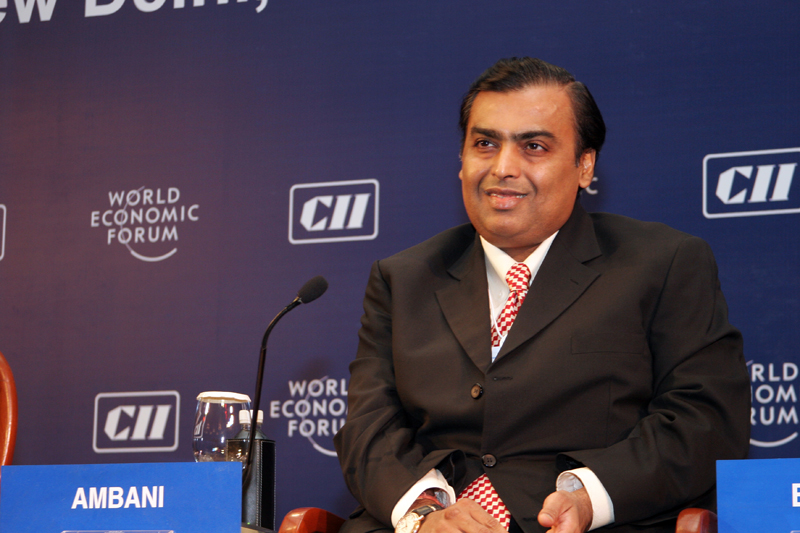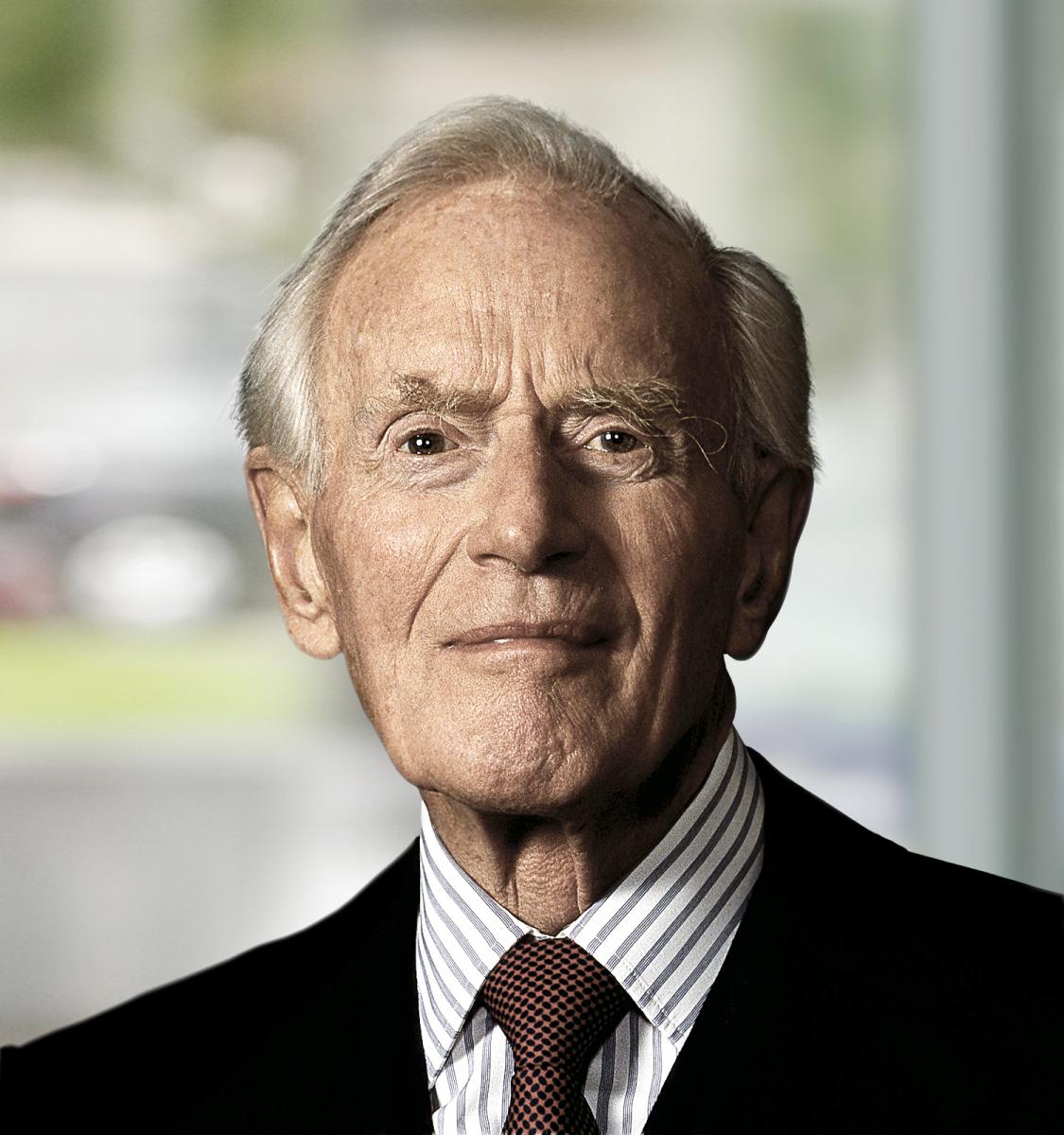FB Roundup: Adani Group, Maersk, Ford Motor Company

Adani doubles green investment pledge of rival Reliance
Gautam Adani, India’s second wealthiest tycoon and leader of his infrastructure and energy empire Adani Group, has announced a $20 billion investment in renewable energy only weeks after rival Mukesh Ambani, India’s richest person, committed to producing the green energy hydrogen.
Adani (pictured left), 59, told investors last week his group will pump $20 billion into clean energy generation and component manufacturing as well as transmission and distribution over 10 years. The billionaire industrialist said his conglomerate would also produce the world’s cheapest “green electron”.
Adani is the founder and the chairman of one of the top three industrial conglomerates in India. The Adani Group consists of six publicly listed entities worth $118 billion, with businesses spanning energy, ports and logistics, mining and resources, gas, defence and aerospace and airports.

The $15 billion group intended to triple its renewable power generation capacity over the next four years, make inroads into green hydrogen production, power all data centres with renewable energy and make its ports net carbon zero by 2025. The group planned to spend more than 75% of capital expenditure until 2025 in green technologies.
Adani’s commitments doubled the renewable energy effort announced by Reliance Industries, the $68 billion diversified multinational conglomerate. Reliance business interests include energy, petrochemicals, natural gas, retail, telecommunications, mass media and textiles.
India’s most valuable company is headed by Ambani (pictured), 64. Earlier this month, the second-generation chairman, managing director and largest shareholder of Reliance touted India as an upcoming world leader in green hydrogen technology by becoming the first country to produce it under $1 per kg.
Ambani reiterated his pledge to invest $10 billion over the next three years in clean energy and hydrogen fuel.
Maersk makes waves with series of e-commerce deals
Maersk, the Danish family-controlled shipping giant, has acquired the Portuguese startup HUUB, its latest in a flurry of deals in e-commerce logistics.
HUUB launched in 2015 as a cloud-based logistics startup, specialising in business-to-consumer warehousing in the fashion industry. Maersk Growth, the corporate venture wing of AP Moller-Maersk, first engaged the Porto-based company in 2019. Following the acquisition by its parent company, Maersk Growth exited the startup along with other investors.
 Maersk has closed several deals in quick succession to bolster its integrated logistics. It first acquired Vandegrift, a US customs services and logistics business in 2019, then in 2020, Performance Team, a US warehousing and distribution company, and KGH Customs Services, a Swedish specialist in trade and customs management services in Europe. Last month Maersk expanded its e-commerce footprint by announcing the acquisition of the US-based Visible Supply Chain Management and its intention to acquire Europe B2C.
Maersk has closed several deals in quick succession to bolster its integrated logistics. It first acquired Vandegrift, a US customs services and logistics business in 2019, then in 2020, Performance Team, a US warehousing and distribution company, and KGH Customs Services, a Swedish specialist in trade and customs management services in Europe. Last month Maersk expanded its e-commerce footprint by announcing the acquisition of the US-based Visible Supply Chain Management and its intention to acquire Europe B2C.
Analysts expect Maersk’s performance for 2021 to match its combined results for the past nine years and make Danish business history. Buoyed by pent-up pandemic consumption, net income will reach $16.2 billion in 2021, according to Bloomberg estimates, up from an average estimate of $3 billion at the beginning of the year.
The $56 billion company is owned by the Moller family, which holds 69.92% of voting rights. Ane Maersk Mc-Kinney Uggla (pictured above left), 73, is the youngest daughter of the late shipping magnate Maersk Mc-Kinney Moller (pictured above right). She is the vice chairwoman of the company’s board of directors and chairwoman of the nomination committee.
.jpg) The 40-year vindication of Bill Ford, the auto environmentalist
The 40-year vindication of Bill Ford, the auto environmentalist
Automotive heir Bill Ford says he faced “scorn” for his environmentalist values when he first joined the $127 billion company his great grandfather founded.
Bill Ford (pictured left), 64, the longest-serving chairperson of any automaker, is steering Ford Motor Company’s $30 billion investment in electric vehicles (EV) through to 2025. The executive has championed environmental protection and sustainability since he was a next-gen joining the family-controlled automaker, but only in the past few years have investors, colleagues and consumers caught up with his green vision.
“When I joined the company in 1979, I joined as somebody who cared deeply about the environment, and I was absolutely appalled that that view was not only not shared, but it was frankly scorned within the company,” Ford told CNBC.
“That’s all changed now. And, yes, it makes me really excited.”
 The Ford Motor Company is the only US automaker committed to doing its bit to reduce CO2 emissions in line with the Paris Climate Agreement. The company is electrifying its totemic vehicles, the Mustang, F-150 and Transit, with more products planned. It has more than 2,300 EV-certified dealers across all 50 states. Ford has North America’s largest public charging network, with more than 63,000 charging plugs.
The Ford Motor Company is the only US automaker committed to doing its bit to reduce CO2 emissions in line with the Paris Climate Agreement. The company is electrifying its totemic vehicles, the Mustang, F-150 and Transit, with more products planned. It has more than 2,300 EV-certified dealers across all 50 states. Ford has North America’s largest public charging network, with more than 63,000 charging plugs.
Earlier in 2021, Ford elected two great-great grandchildren of Henry Ford to its 14-person board of directors, Alexandra Ford English (pictured right), 33, and Henry Ford III, 40. However, Bill Ford said he was not stepping down just yet.
“I feel like I’m adding value to Ford today, maybe more than I ever have,” Ford said.
“As long as I feel like I’m contributing and can work at the pace that the company needs me to work at, I’ll be here. Someday that won’t be the case and I think I’ll know when that happens.”






